UTS via RES Hub hosted an afternoon tea as part of the international celebration of research management professionals known as Research Administrators’ Day. Research management professionals play a vital role in supporting and enabling research at UTS and its translation into real-world impact.
Celebrating Research Administrators’ Day
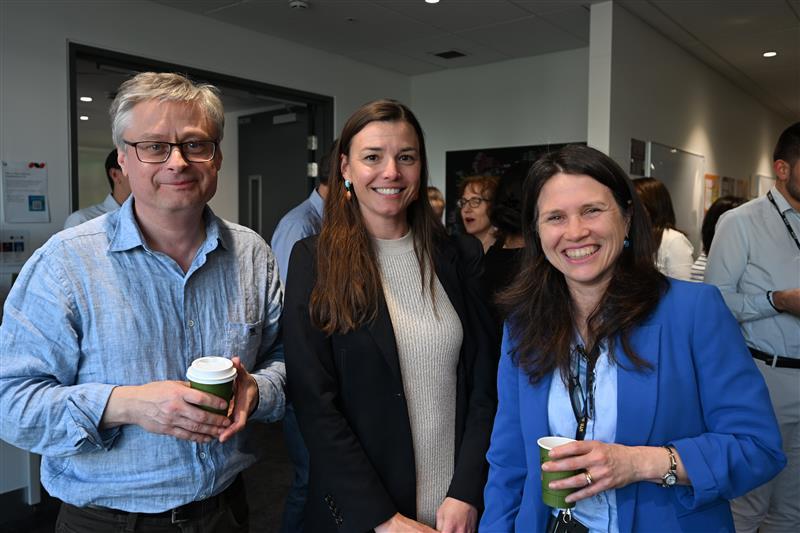
From facilitating the ideation and conceptualisation of research activities, research funding and external partnering, contracting, bringing on board and supporting higher degree by research students and managing intellectual property to ensuring research integrity and the good conduct of research, researcher development, research communications, managing research finance, strategic research intelligence and reporting, offering support with digital research tools, providing research infrastructure and data management, a wide range of UTS research professional staff work tirelessly each day to help our researchers.
Interim Pro Vice-Chancellor (Research), Distinguished Professor Alaina Ammit, welcomed guests and thanked them for their incredible contributions to UTS research.
“We researchers sincerely appreciate the work of research management professionals. I thank you for your dedication, expert knowledge and hard work that helps innovation and delivers research excellence across disciplines,” she said.
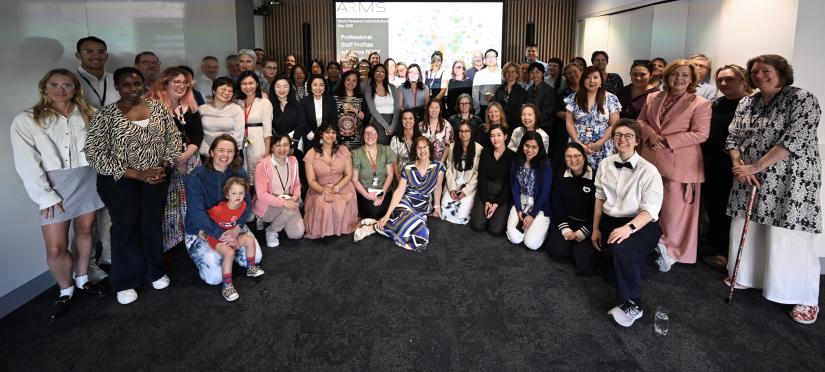
Connecting through collaboration
Director of the UTS Research Office, Dr Tania Bezzobs, also expressed her gratitude to everyone in the UTS research management community, urging all attendees to join the Australasian Research Management Society (ARMS), for which she has recently ended her second term as President.
The strength of our Society and what we do as research managers is how we collaborate and share knowledge with each other, not just in our in our teams, but across the university and with our colleagues across the sector.
“We're part of a bigger network across Australia and we are also active in Singapore, New Zealand and the Pacific Islands, as well as being part of a global network,” she said, “We have many special interest groups and joining ARMS is a great way for you to engage professionally across the research community.”
“The strength of our Society and what we do as research managers is how we collaborate and share knowledge with each other, not just in our in our teams, but across the university and with our colleagues across the sector.”
Empowering research
A/Prof Sarah Kinkel, Deputy Dean in the Graduate Research School, added her thanks and appreciation of UTS research professionals.
“Research would be impossible without the work you are doing,” she said.
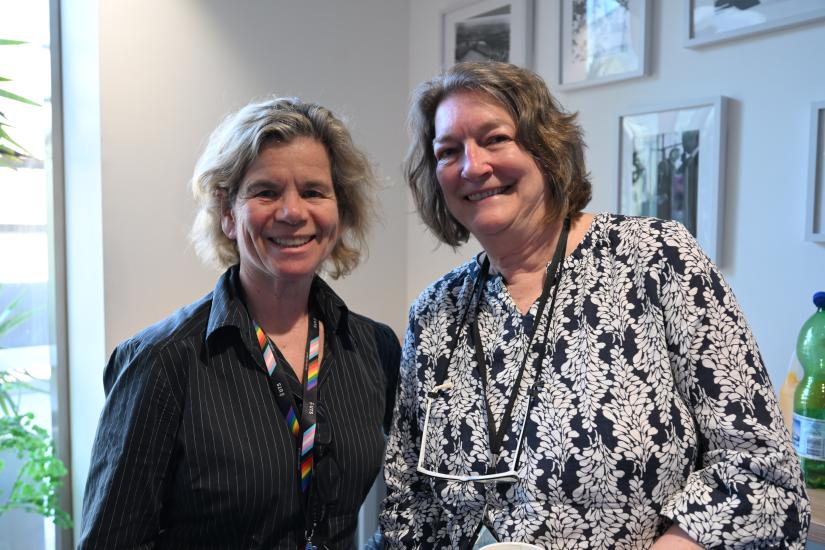
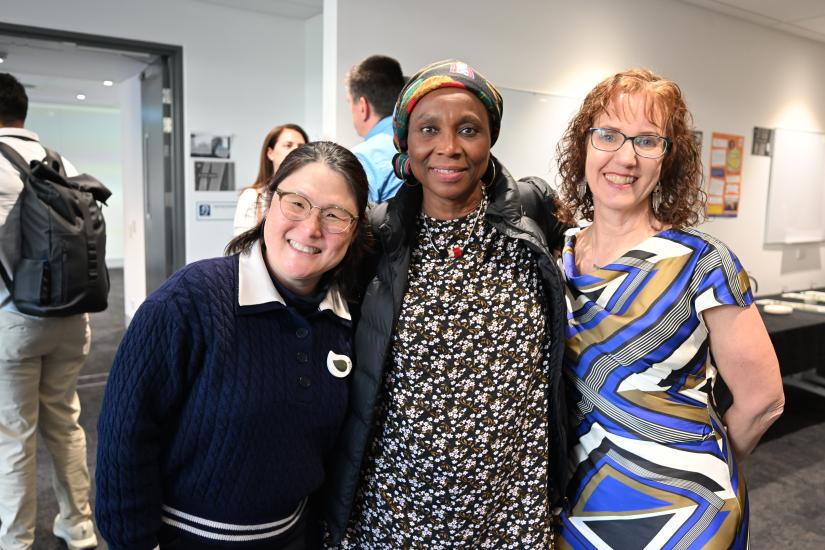
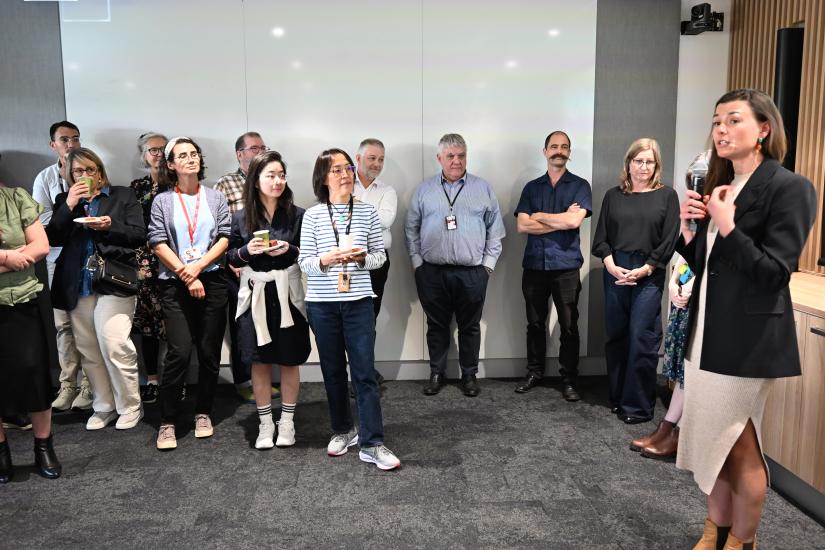
Sarah spoke about the critical functions research managers play in the research community: guiding researchers through policies and processes, developing their capabilities, connecting them to one another and to external stakeholders, and enabling them to showcase their impact.
Research would be impossible without the work you are doing,
"Your work empowers our academic researchers to solve the problems that they are trying to solve, and enables them to do it at scale,” she said. “I’m proud to be working alongside you and I admire and appreciate the work that you do.”
Reframing bureaucracy
Prof David Brown, Head of Accounting Department and co-founder and co-director of the UTS Ageing Research Collaborative, shared a presentation about the value of research administration as part of “enabling” bureaucracy.
“I'm incredibly grateful for the support that I get as a professor working on research through the work you do,” he said, noting that many in the room had helped him out in very difficult times.
David explained that bureaucracy is critical to organising human effort to achieve things at scale.
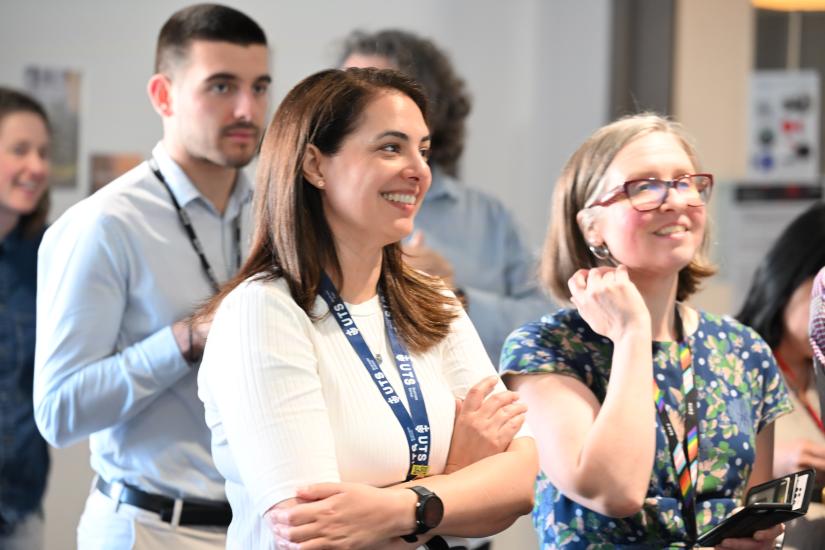
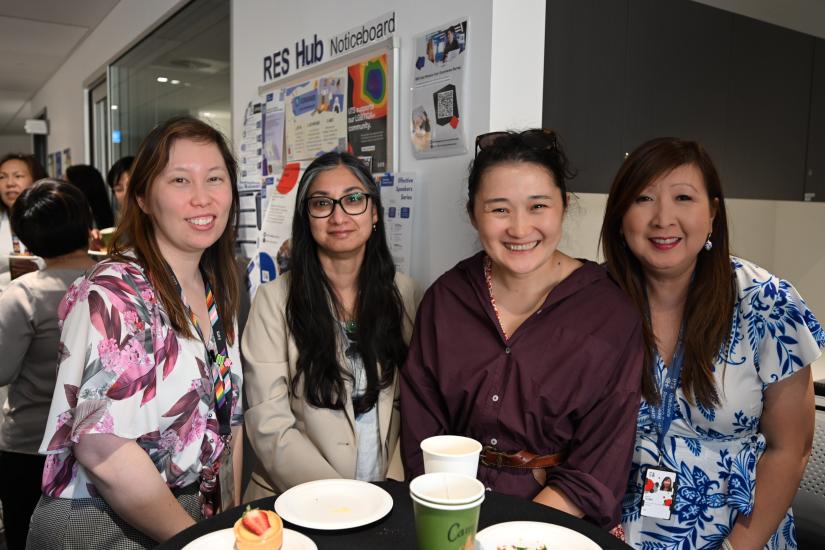
“One of the things I've really loved about the way research has developed at UTS is this acknowledgement of the fact that if we're going to work on really big problems, and solve really significant problems, and have impact, we need to do research at scale, rather than working like a cottage industry,” he said.
“And to do that, you need bureaucracy.”
David noted that although bureaucracy is often thought of negatively, there is an important distinction between enabling and coercive bureaucracy.
Coercive bureaucracy enforces compliance and limits autonomy (i.e. red tape) whereas enabling bureaucracy facilitates mastery of tasks, captures best practices and builds capability in organisations.
“The literature shows that when well-designed procedures are in place, bureaucracy helps employees see congruence in the work that they do and their goals. It reduces conflict and ambiguity, and it actually increases commitment and innovation, interestingly enough,” he said.
David broke down the elements of enabling bureaucracy:
- Repair: Allows team members to respond to unexpected issues and improve systems.
- Internal Transparency: Clarifies the logic and principles behind processes.
- External Transparency: Helps team members understand the broader organisational context.
- Flexibility: Permits adaptation of systems to suit specific circumstances, encouraging learning and improvement.
David acknowledged the coexistence of two organisational logics in a university setting: the academic structure which values autonomy and flexibility and the professional structure which focuses on compliance and standardisation. He argued that understanding and applying enabling bureaucracy helps bridge the gap between these cultures.
The literature shows that when well-designed procedures are in place, bureaucracy helps employees see congruence in the work that they do and their goals. It reduces conflict and ambiguity, and it actually increases commitment and innovation, interestingly enough.
“Being able to understand the difference between enabling and coercive bureaucracy and how you actually use it is one of the key things that enables the academic world and the professional staff and support world to actually speak to each other,” he explained.
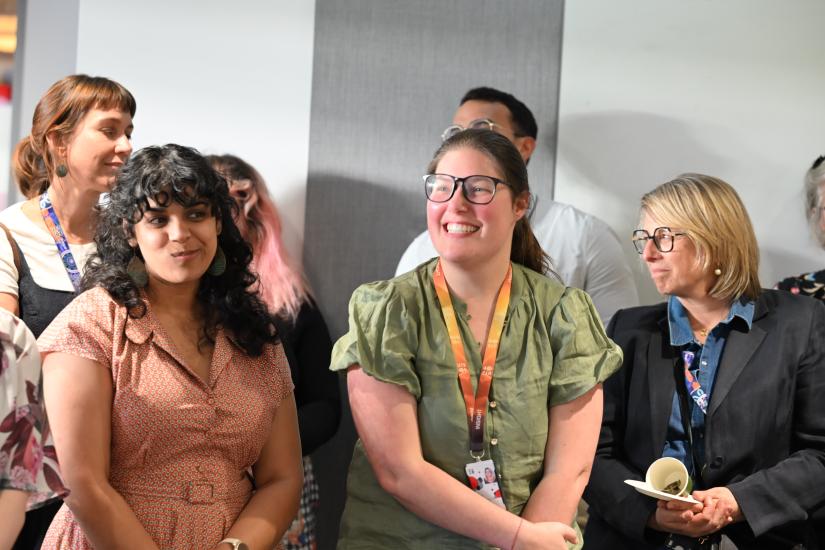
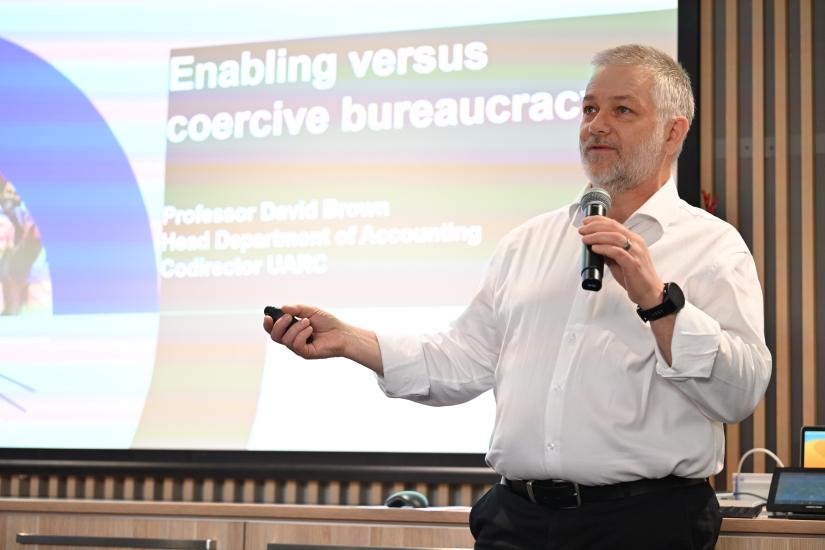
“This is how we achieve what is actually a common goal - the teaching of students and the production of research that has value to society at large,” David said.
Enhancing discoverability
The celebrations concluded with Research Data Insights Analyst, Yuveena Gopalan, who demonstrated how to use keywords effectively in order to be discoverable. Using visualisations, Yuveena demonstrated how to enhance the way we showcase our capabilities on UTS Discovery Profile pages.
“If somebody was looking for your area of expertise, would they be able to find you?” she asked.
If somebody was looking for your area of expertise, would they be able to find you?
Yuveena explained that the UTS Research Outcomes Capability Framework is currently being refined to include shared terms that will be useful in enhancing discoverability of your profiles.
“That way, including relevant terms in your profile makes it easier for those seeking expertise in your area to find and connect with you.”
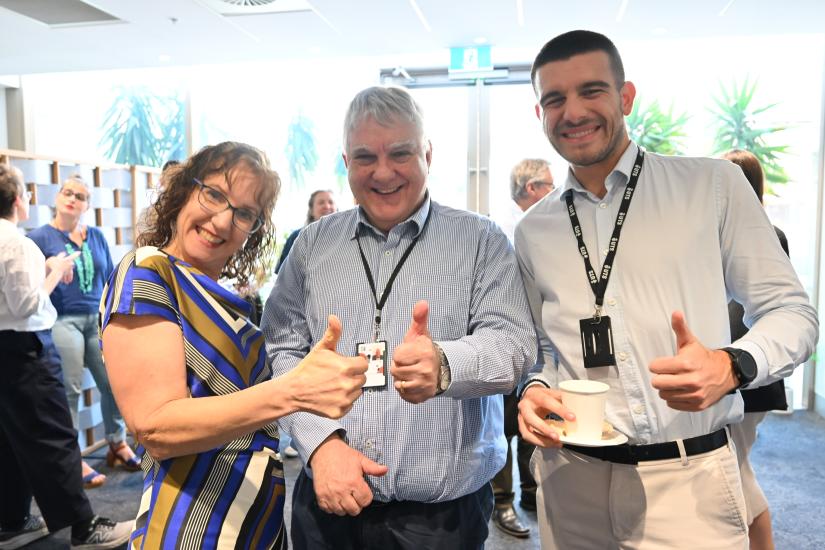
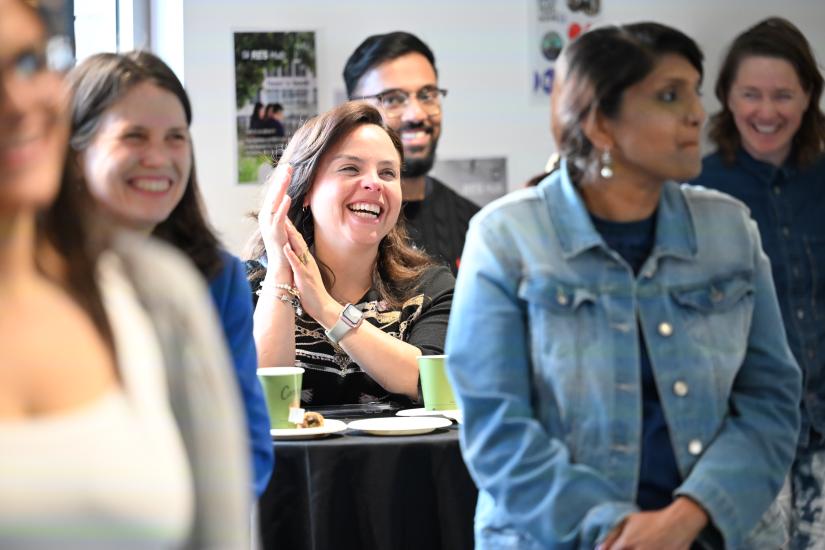
With the glossary of keywords being updated, these enhanced resources will soon be available to the UTS research community.
Thanks to Amy Cotton for these images that captured the spirit of Research Administrators’ Day.
What’s next?
- Discover the research support available at UTS.
- Participate in research development programs.
- Learn more about the Australasian Research Management Society.